A Musical Theater Nerd’s Fight For Progress

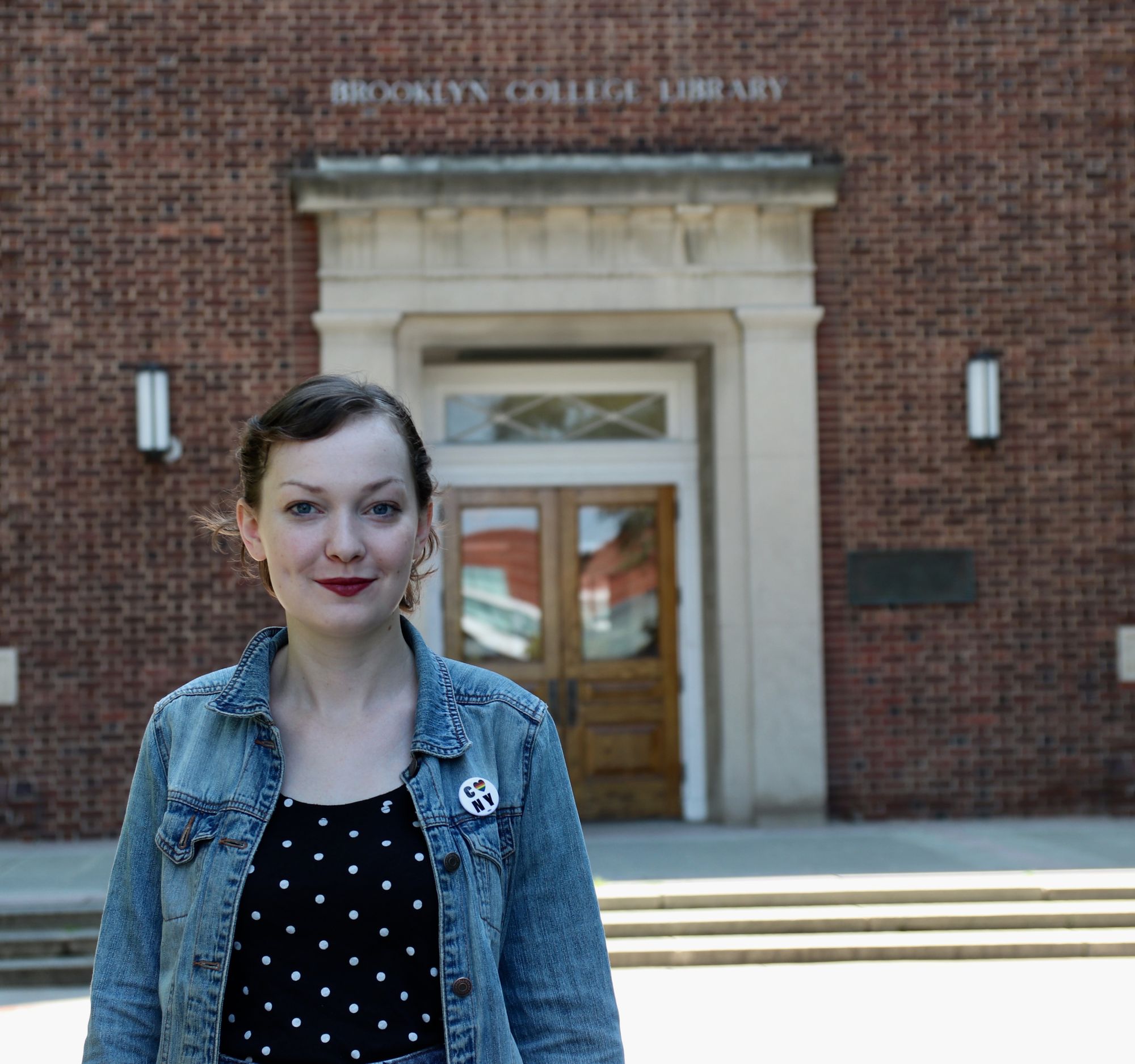
FLATBUSH – When Corrinne Greene was in kindergarten, she asked her principal to add “This Land Is Your Land” to the school’s patriotic selections list, which the principal did. Nearly two decades later, Greene has organized and participated in many protests. She has chanted outside Governor Andrew Cuomo’s office, marched at the Women’s March in Washington D.C., and rallied in support of Deferred Action for Childhood Arrivals (DACA). And she isn’t planning to stop anytime soon.
Greene, a 21-year-old full-time Brooklyn College theater student, works as a student organizer for Cynthia Nixon’s gubernatorial campaign and is the national coordinator and strategist at Young Progressives of America, yet she refers to herself as a “regular college student.”
“I haven’t done anything that changed the world,” she laughed.
On this particularly hot day, Greene was wearing a denim skirt that matched her blue denim jacket and a black blouse with polka dots. It was a simple outfit, so the Cynthia For New York button pinned on her jacket stood out. Greene was born in Delaware. She moved to Buffalo, New York when she was three and lived there until she attended college. She describes her upstate home as a very “homogenous, white community.”
“The biggest difference between Buffalo and Brooklyn is diversity,” she said. “I went home to see a high school musical with my mom. I kid you not, in a 1,000-seat school auditorium, there were only white people.”
“Why is it that when the U.S. has so many different cultures, an auditorium is filled with only white people?”
Diversity is one of the main reasons why Greene decided to transfer colleges from Ithaca to Brooklyn. She felt the students at Ithaca College were “privileged.” She said she was in the middle of nowhere and wanted to be in a progressive space and campus. That’s how she came to Brooklyn College. After living in Crown Heights for a while, Greene now lives in Ditmas Park.
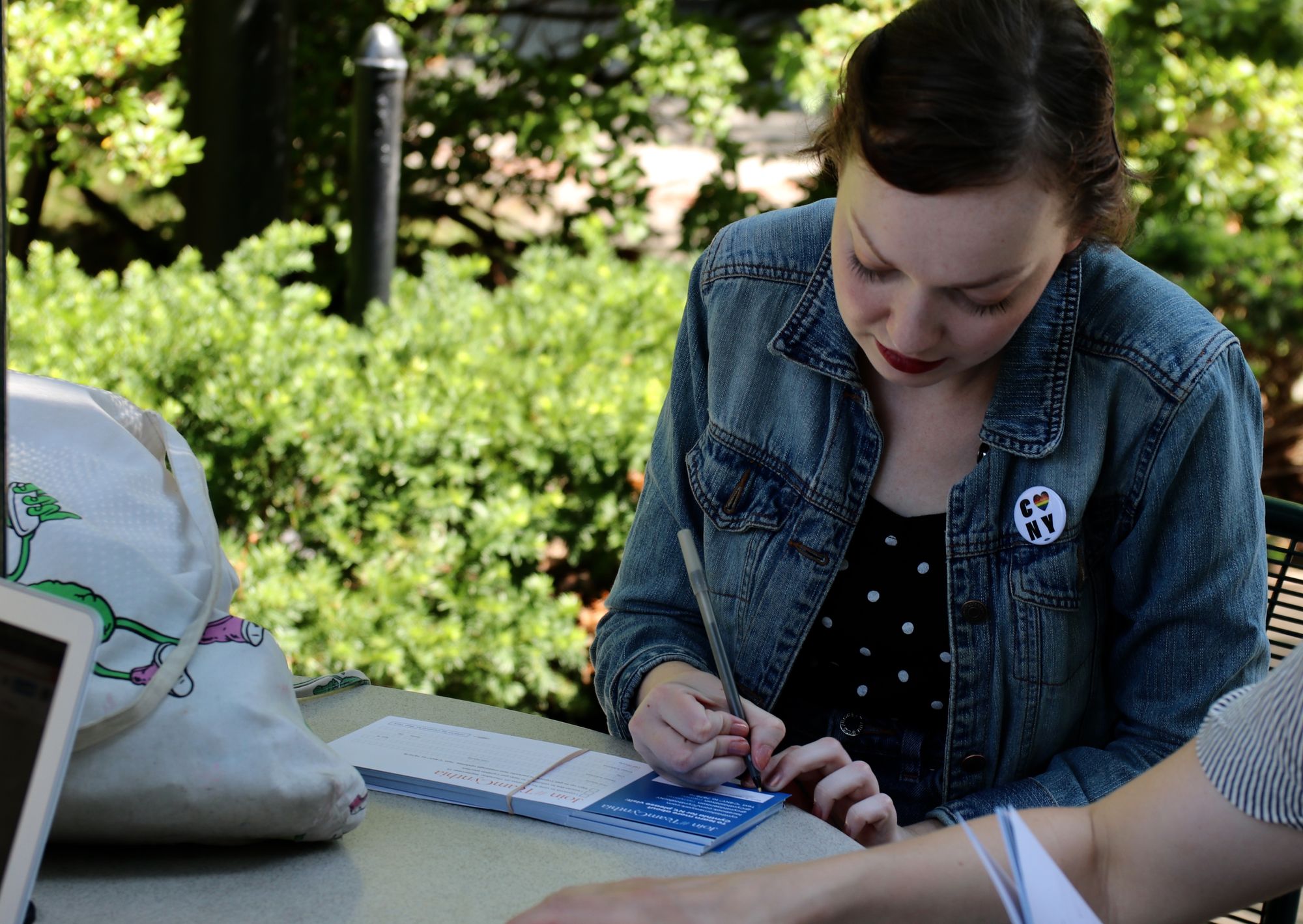
During winter break in January, Greene went on a trip to Israel and Palestine. On the trip, she went to a bunker, saw the border, and learned about the segregated bus system in Jerusalem. Going on that trip was very pivotal for her, she said. On the last day, her group had dinner and talked about their takeaways. When it was her turn to speak she said, “I had really good food and I’m inspired to make a change and fight for what’s right.”
“I took that back with me,” she said. The very next day after landing in New York, she went to Manhattan and marched in the Women’s March. Just this week she was protesting outside the New Jersey Hudson County Correctional Facility where many undocumented immigrants—Pablo Villavicencio, the pizza delivery guy, was detained there—are being held. The detainees were able to see the protestors from the recreational area shouting “Libertad,” which means “freedom” in Spanish.
Activism doesn’t stop for Corrinne Greene.
“I think anyone can be an activist and I think everyone should be an activist,” she said. “The root of the word is ‘action’….This is not a Merriam-Webster definition but in my perspective, activism is taking action on your vision of what you want.”
Greene believes that speaking out when someone says a slur or not taking part in the Bystander Effect (a phenomenon where people are less likely to help a person when there are others present) are examples of activism. She says that voting or even watching the news are small examples of what it means to be an activist.
“You have a right to free speech. You should really use it.”
Though she does more than voting and calling people out, she acknowledges that there are people who are doing way more than she is.
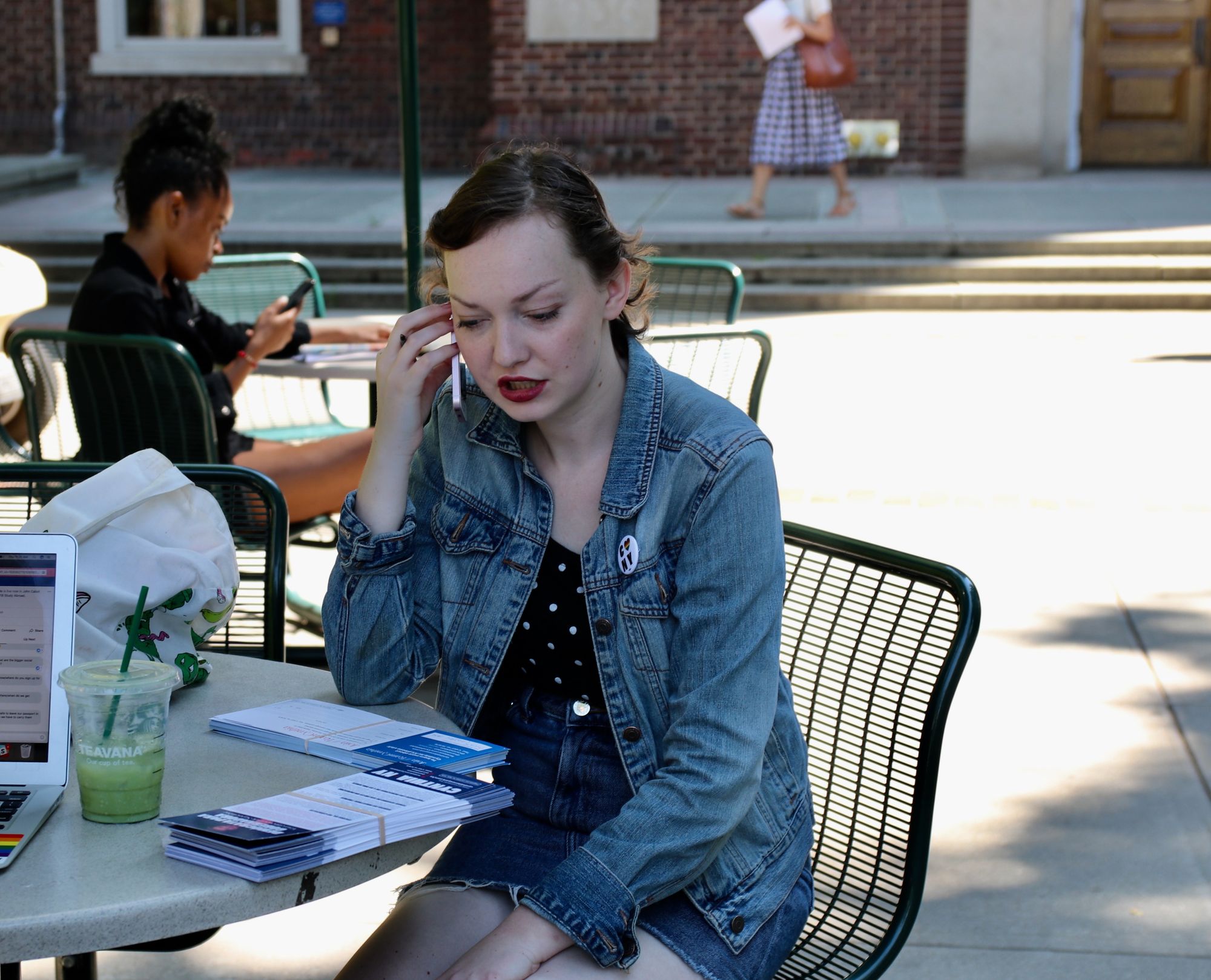
Her personal pet project is fighting for higher education funding—especially on the Brooklyn College campus. “What was known as the ‘Poor Man’s Harvard’ is now known as ‘Brokelyn College,'” she said.
On April 25, CUNY students and faculty testified before elected officials about the increase in tuition and crumbling facilities on CUNY campuses. Greene participated and spoke about the broken facilities on campus. She referred to the Instagram page that’s very popular amongst the college community, “Brokelyn College,” where students document everything that’s “in a state of disrepair” at the school. She also spoke about her own experiences.
“I am personally affected by education and feel very connected to it emotionally,” she said. “I go to a public school; my parents are public school teachers; my grandma, who didn’t even have a college education, was a secretary in a high school. My grandfather was a superintendent in a public school district, and my grandmother on the other side was a history teacher.”
She believes people should recognize that everything is interrelated and education comes at the forefront. “Public education is a foundation of our communities,” she said. “So all these other issues that I’m worried about—health care, people not vaccinating their kids, job readiness, people not being able to pursue careers they want, people not being about to get out of poverty—it all can be helped with a very strong education system.”
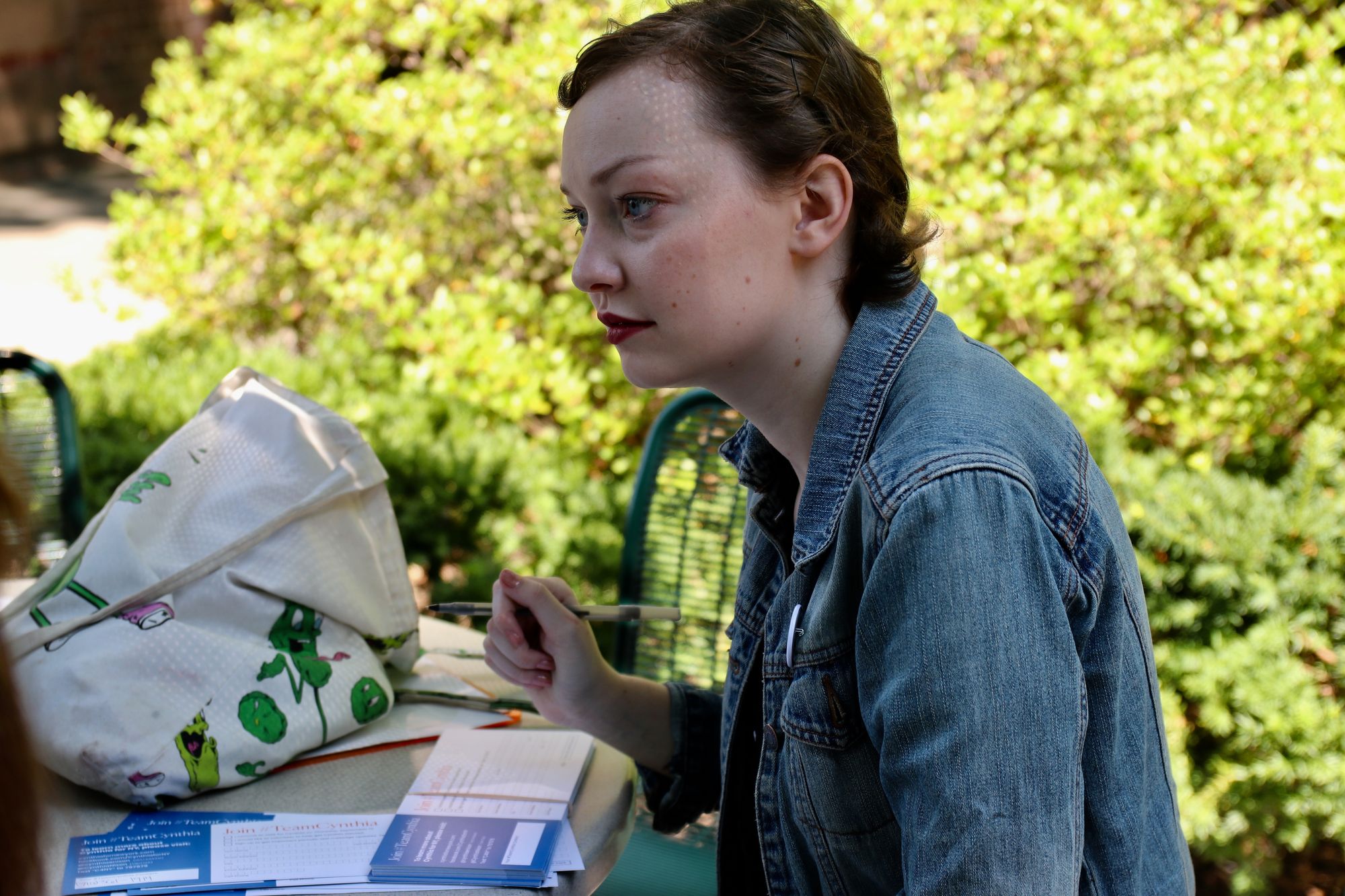
Greene is currently working as a staff organizer for Nixon’s campaign. She believes Nixon embodies the true definition of being progressive. But what does being progressive really mean?
“I’ve seen Alexandria Ocasio-Cortez give the answer of policy. Some people have a metric test for being progressive, like $15 minimum wage, Medicare for all,” she said. “I think that being progressive is fundamentally fighting for progress. That metric always shifts as we move and make progress. For me, it’s fighting for justice (racial, economic, environmental) and recognizing the intersectionality of them. It’s fighting and working together to be better.”
In December, Greene’s lighting design professor worked on the Broadway production of “The Little Foxes” starring Nixon. She went to Broadway and got to see Nixon’s performance (which she thought was great). A few months later, Nixon announced her candidacy for governor and Greene has been supporting her ever since.
“Cynthia has actually been an advocate for education for almost 20 years. People don’t really know that because she’s very humble about it,” Greene said. “She’s also obviously quite wealthy but sends her children to public schools.”
Greene had brought along a stack of pamphlets and was about to canvas for Nixon on campus. Greene may or may not realize it, but she and Nixon have much in common. Both are tall, confident women with short hair. They are both progressive, pursued a career in the arts, and are activists advocating for change.
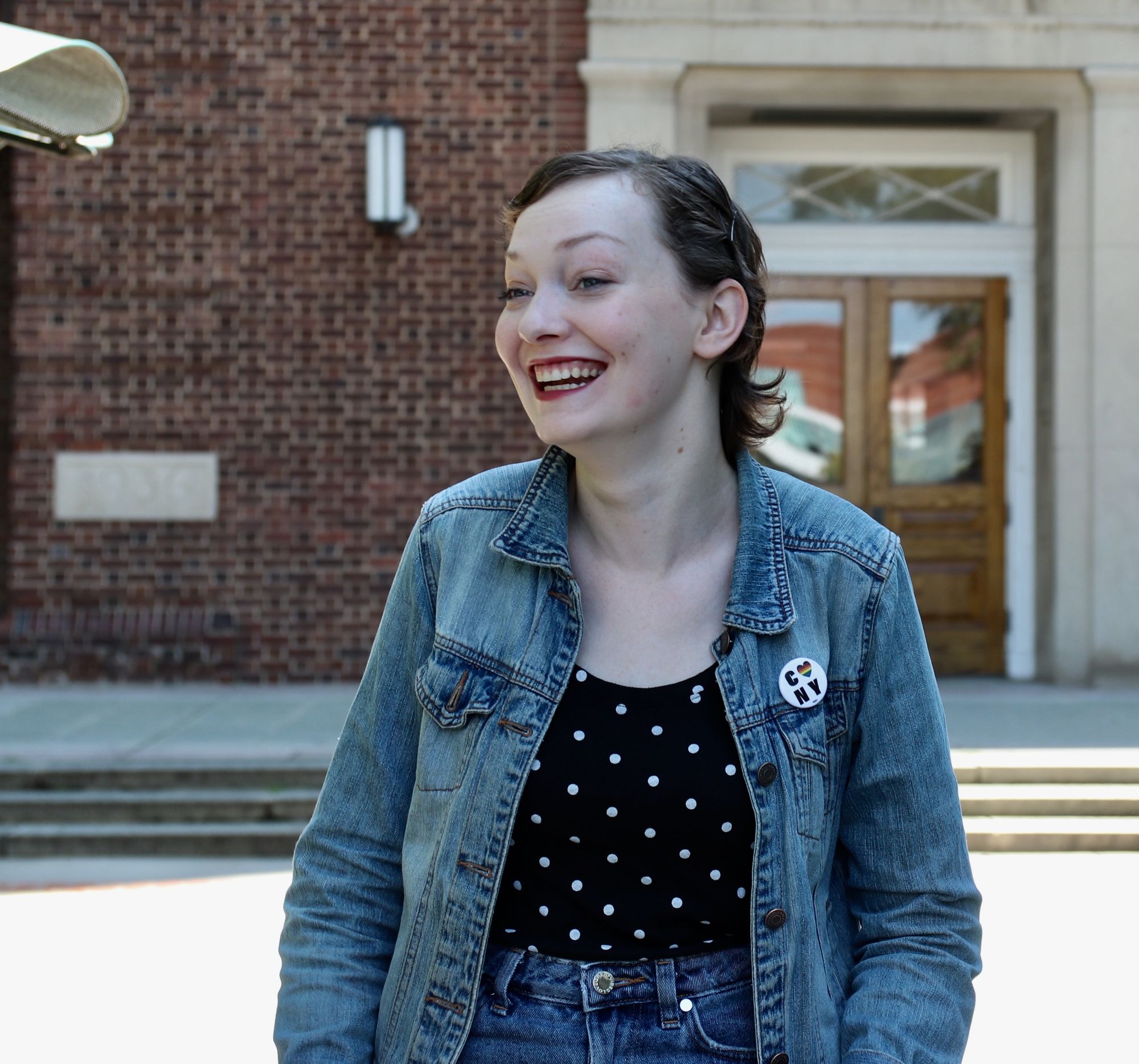
Greene calls herself a “theater nerd” and one of the reasons she loves theater so much is because it’s connected to activism. “You have ‘Newsies’ about the Newsboys’ Strike. ‘Rent’ is about the AIDS crisis. You have ‘Hamilton,’ and last summer the ‘Julius Caesar’ sponsorship was pulled [from the Shakespeare in the Park production] and people stormed the stage and got very angry,” Greene said. “That’s certainly a form of activism.”
When Greene was six years old she wanted to be an astronaut. When she was seven, she wanted to be an interior designer. Being on Broadway and becoming a music teacher were also career options. Now, she doesn’t know what the future holds. “With the space force now, I don’t know,” she laughed.
What she does know is that going out and making her voice heard is something she’ll always do. And she encourages others to do the same.
“People in power are making a lot of choices that affect us,” she said. “It’s uncomfortable to get involved sometimes, but I think it’s even more uncomfortable to suffer the consequences of not doing so. Not everyone has the personality to go outside and grab a Bullhorn and I get that, but it’s important to recognize what’s at stake.”




